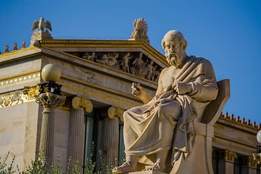dialectic
noun
di·a·lec·tic
ˌdī-ə-ˈlek-tik 

1
philosophy
: logic sense 1a(1)
2
3
philosophy
: the logic of appearances and of illusions : the logic of fallacy
the dialectic of Kant
4
philosophy
a
: the Hegelian process of change in which a concept or its realization passes over into and is preserved and fulfilled by its opposite
also
: the critical investigation of this process
b
Marxism
(1)
usually dialectics plural in form but singular or plural in construction
: development through the stages of thesis (see thesis sense 4), antithesis, and synthesis (see synthesis sense 2b) in accordance with the laws of dialectical materialism
(2)
: the investigation of this process
(3)
: the theoretical application of this process especially in the social sciences
5
usually dialectics plural in form but singular or plural in construction philosophy
a
: any systematic reasoning, exposition (see exposition sense 2a), or argument that juxtaposes opposed or contradictory ideas and usually seeks to resolve their conflict : a method of examining and discussing opposing ideas in order to find the truth
b
: an intellectual exchange of ideas
6
philosophy
: the dialectical tension or opposition between two interacting forces or elements
Love words? Need even more definitions?
Merriam-Webster unabridged











Share